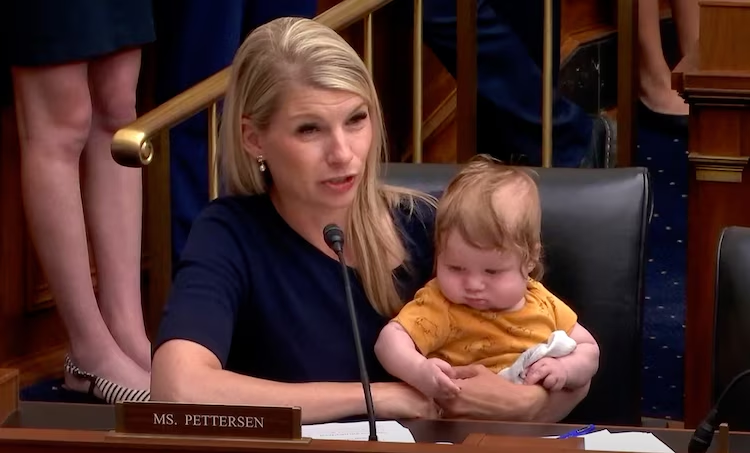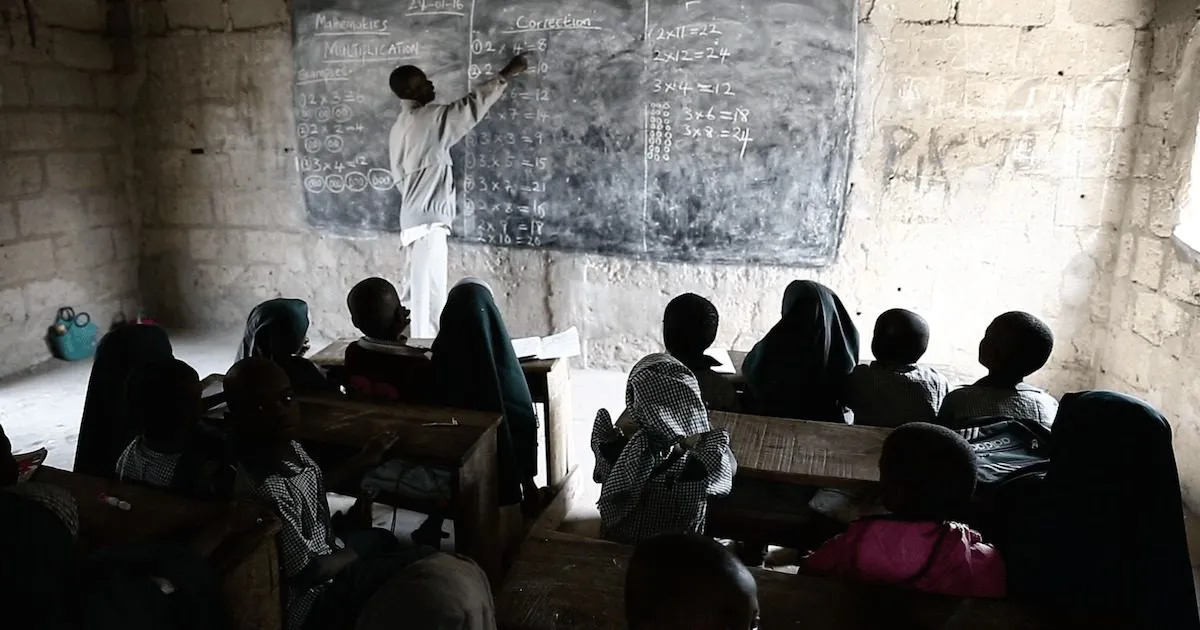The Childcare Crisis in America: Why Parents Deserve Better Family-Friendly Policies

Introduction
In recent times American parents are struggling not because they are failing, but because the system is. Every day, millions of parents wake up facing the same impossible choice: care or career. With child care costs rivalling rent or tuition, support systems barely functioning, and gender disparities widening, families are reaching a breaking point.
The crisis is not just financial. It is structural, emotional, and deeply personal. It’s the mother skipping meals to afford day-care. It’s the father working night shifts while his toddler sleeps in a backroom. It’s the couple postponing another child because they “can not afford to.”
This issue even made it to Capitol Hill when Rep. Brittany Pettersen of Colorado brought her 5-month-old son, Sam, to a congressional hearing because she had no child care. Dressed in a yellow onesie, Sam quietly cooed in her lap as she questioned Federal Reserve Chair Jerome Powell about monetary policy. Pettersen later said she had no choice as like millions of Americans, she was on a child care waitlist.
“I’m going to do this the best I can with Sam here,” she told the hearing.
Powell responded, “And thank you, Sam.”
That moment laid bare the absurdity of it all: even a sitting U.S. congresswoman can not secure child care in the wealthiest country on Earth. What hope does the average family have?
A Nation of Parents in Crisis
In 2024, nearly 1 in 5 working-age adults in the U.S. had a child under 6. That’s more than 24 million Americans navigating child care deserts, unaffordable tuition, and irregular schedules. A staggering 560,000 parents report they aren’t working because they cannot find or afford child care.
Nationally:
- 16% of mothers with young children who wanted to work said they were not even looking for jobs because of child care challenges.
- In Mississippi, 36% of mothers with young children are single parents, often with no family support or flexible job options.
Crippling Costs, Impossible Choices
Child care is one of the biggest expenses for American families today:
- The average national cost of centre-based care for an infant is $13,128/year.
- In states like Massachusetts, it exceeds $26,000/year—more than a year of in-state college tuition.
- In 41 states and D.C., child care costs more than rent.
- It eats up 35% of a single parent’s income far beyond the federal affordability benchmark of 7%.
This cost forces impossible decisions. Parents calculate whether their entire pay check will be eaten up by day care and many conclude that it will. But leaving the workforce has lifelong consequences, especially for mothers:
- Lost wages
- Missed promotions
- Shrinking retirement savings
- Widening gender pay gaps
Children Are Also Affected
Children thrive in safe, stimulating, consistent care environments. But when families can not afford quality care, children experience:
- Unstable routines and frequent transitions
- Exposure to undertrained or underpaid caregivers
- Delays in language, social, and emotional development
Moreover, stress at home affects children profoundly. Parents juggling three jobs or slipping into debt to afford care are less emotionally available, more anxious, and less engaged. These conditions contribute to:
- Toxic stress exposure
- Behavioural issues
- Educational underperformance later in life
Caregivers Are Underpaid and Overwhelmed
While families are drowning in care costs, those providing the care are barely scraping by.
- Many caregivers receive no benefits, no paid leave, and minimal job security.
- The field is experiencing mass burnout and turnover, shrinking supply further.
- The child care system is broken for everyone, families, children, and workers alike.
Mental Health Toll: Parents are Exhausted, Anxious, and Out of Options
There is a mental health crisis simmering beneath the surface of this child care emergency:
- Parents are burning out, juggling full-time jobs with full-time care duties.
- Mothers are grappling with guilt, shame, and anxiety as they struggle to balance roles.
- Children are experiencing developmental delays and emotional strain when care is erratic or substandard.
Recommendations:
- Universal, Publicly Funded Child Care
- Modelled after K–12 education
- Federally supported, locally administered
- Accessible to every family, regardless of income
- Living Wages and Benefits for Care Workers
- Competitive pay and training
- Healthcare, paid leave, and pensions
- Pathways for professional advancement
- National Paid Family and Parental Leave
- At least 12 weeks guaranteed
- For all parents: birth, adoptive, and foster
- Fully paid, job-protected
- Tax Reform for Families
- Make the enhanced Child Tax Credit permanent
- Expand refundability and index it to inflation
- Deduct child care expenses for middle- and lower-income families
- Employer Accountability
- Require large employers to offer on-site or subsidized child care
- Reward businesses with family-supportive policies
- Mandate flexible work schedules and protect against caregiver discrimination
- Infrastructure Investment
- Build child care centres in underserved communities
- Fund home-based providers with grants and oversight
Conclusion
Raising a child should not be a financial death sentence. Having a family should not mean forfeiting your career, health, or identity. Until we value caregiving as a public good and not a private burden, we will continue to lose families and a generation of potential.





